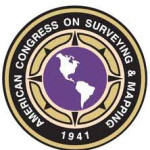- Industry: Earth science
- Number of terms: 93452
- Number of blossaries: 0
- Company Profile:
Founded in 1941, the American Congress on Surveying and Mapping (ACSM) is an international association representing the interests of professionals in surveying, mapping and communicating spatial data relating to the Earth's surface. Today, ACSM's members include more than 7,000 surveyors, ...
A motion from a lower to a higher location. In particular, a point on the celestial equator at which such a motion occurs.
Industry:Earth science
A method of determining the offsets for the line representing the lowest latitude of a map projection by measuring the appropriate distances down from the line representing the highest latitude.
Industry:Earth science
(1) The figure formed by two intersecting half planes and the line (called the axis) of intersection on which they terminate. The half planes are called the sides of the dihedral angle. (2) The number expressing the size of the plane angle formed by intersecting the two sides with a plane perpendicular to the axis. The dihedral angle is termed acute, right or obtuse according as the size of the corresponding plane angle is less than, equal to or greater than 90°, respectively.
Industry:Earth science
Aerotriangulation adjustment in which corrections to coordinates of ground points are determined separately for each stereoscopic model. Inconsistencies between coordinates from different models are removed in a second or third series of adjustments.
Industry:Earth science
An uncertainty which does not appear upon the face of an instrument but arises from evidence aliunde - that is, one which is not involved in the words themselves but arises from outside matters. Thus, a conveyance to John Smith, living on Fifth Avenue, when it appears that there are two or more John Smiths so living, contains a latent ambiguity. The opposite of patent ambiguity.
Industry:Earth science
A gravity reduction applying to a measured or computed value of gravity the sum ä <sub>AH</sub> of the free air gravity correction äg <sub>f</sub>, the complete topographic gravity correction äg <sub>tc</sub>, and the Airy Heiskanen gravity correction äg<sub>AH</sub>. The quantity ä <sub>AH</sub> is calculated using the quadrangles of the Hayford template.
Industry:Earth science
A method of mapping from aerial photographs, proceeding point by point by a combination of graphical and analytical methods of aerotriangulation.
Industry:Earth science
The horizontal angle between the meridian line and a line on the Earth. The term true bearing is used in many of the early descriptions of land boundaries in the U. S. A. It is associated with astronomic north, i.e. the direction of the north point as determined by astronomical observations. If an astronomically determined bearing is used, the term astronomic bearing is now preferred over true bearing.
Industry:Earth science
In some of the southern states of the U. S. A. , (such as Alabama, Mississippi and South Carolina), the principal legal subdivision of a county, and corresponding to towns or townships in other states or a voting precinct.
Industry:Earth science
The point on which a geographical region would balance if it were a plate of uniform thickness and density. In other words, it is the center of gravity of the plate. The geographic center of continental United States of America (exclusive of Alaska and Hawaii) is in the eastern part of Smith County, Kansas, at longitude 98<sup>o</sup> 35' West, latitude 30<sup>o</sup> 50' North. The geographic centers of various states are given in the U. S. Geological Survey Bulletin 817, Boundaries, Areas, geographic Centers, and Altitudes of the United States and the several States.
Industry:Earth science
